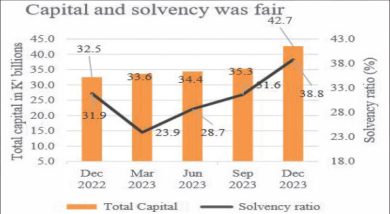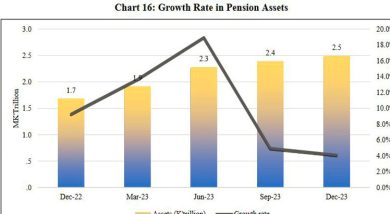India opens pigeon peas market for Malawi
 Alfa Corporation, one of Indian major importers of pigeon peas, is looking for suppliers of the crop from Malawi.
Alfa Corporation, one of Indian major importers of pigeon peas, is looking for suppliers of the crop from Malawi.
Experts have described this as an opportunity for Malawi currently reeling under serious foreign exchange shortages to patch up its holes.
The Indian opportunity also comes at a time government is looking for ways to diversify its economy in the face of dwindling tobacco sales on the international market due to, among other factors, World Health Organisation (WHO) anti-smoking campaign.
Tobacco wires in about 60 percent of Malawi’s foreign exchange earnings and contribute about 13 percent to its gross domestic product (GDP).
While some importers have preferential varieties, Alfa Corporation buys different types of pigeon peas.
“We are one of the major importers of pigeon peas in India. We have a stable and strong market for all years. We are looking for new suppliers of pigeon peas from Peru, Burma, Malawi, Tanzania and Kenya,†reads a statement from the company pasted on its website www.alfacorporation.in.
India is the major importer, producer and consumer of pigeon peas in the world.
“We are India-based, but have a branch in Mozambique, which is our strong benefit to cover all African market and some European market.
“We offer country of origin goods and deal mainly in agro-commodities, agro-equipment, small-scale industrial machines, sisal fibres, agro chemicals, cattle and poultry feed,†reads Alfa statement.
Early this year, the International Crops Research Institute of Semi Arid Tropics (Icrisat) claimed it clinched business deals for Malawian farmers in India.
Icrisat sponsored a business trip for Kakuyu Investment and National Smallholder Farmers Association of Malawi (Nasfam) officials to India where they discovered that pigeon peas is one of their staple foods and after discussions with one of the major companies, they were told to supply the Indian company with 5 000 metric tonnes of pigeon peas in a month, translating into 60 000 metric tonnes in a year.
But in an interview yesterday, Icrisat project manager Felix Sichali said local farmers are yet to supply the Indian company with the peas.
“Icrisat, as a research institution, has been working with local farmers in Mangochi, Thyolo, Lilongwe, Kasungu and Rumphi to multiply pigeon peas seed which will be distributed to farmers to plant this rainy season,†he said.
Sichali said Icrisat has developed a new variety of pigeon peas, which is locally known as Mwayi Wathu Alimi.
“Mwayi Wathu Alimi is high yielding variety, medium duration maturity variety and can be grown in all the regions of the country,†he said.
Sichali said if the Indian deal materialises, it could help to shore up Malawi’s foreign exchange reserves.
The Indian market is a big bonus to government which is promoting the production of legumes said to have a huge export potential.
Farmers Union of Malawi (FUM) president Felix Jumbe said the agriculture sector has the potential of turning around the country’s economic woes.
He, however, cited lack of capital, quality seeds, organised markets, modern technologies, limited land and huge post harvest losses as some of the factors frustrating the sector.
Richard Mwasiya, a farmer in Blantyre, said he has benefitted nothing since he started growing the crop five years ago.
“I sell my pigeon peas to vendors who usually get it for a song. That aside, they use false balances to skin farmers,†he said.
Malawi Confederation of Chambers of Commerce and Industry (MCCCI) chief executive officer Chancellor Kaferapanjira recently told Business News that low prices is one factor that discourages farmers from maximising production.
Experts also noted that local companies export pigeon peas to India when farmers in that country also harvest their peas, saying this negatively affect profit margins.
Pigeon peas is grown by small-scale farmers as a secondary crop and is usually intercropped with other crops such as maize.
Pigeon peas value analysis shows that the Southern Region is the major producer of the crop with Machinga and Blantyre Agriculture Development Division (ADD) accounting for over 90 percent.
Malawi is among top exporters of pigeon peas in the world and the crop enters the export market through processing companies such as Transglobe Limited, Rab Processors and Bharat Trading Company.
Â





